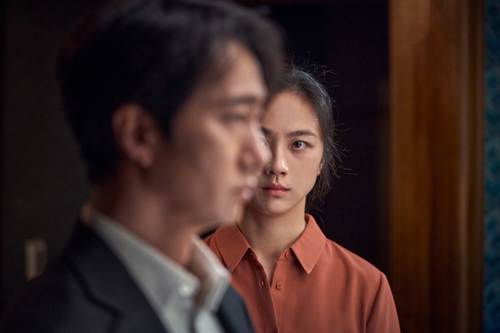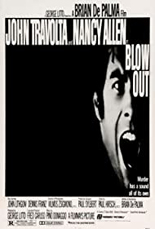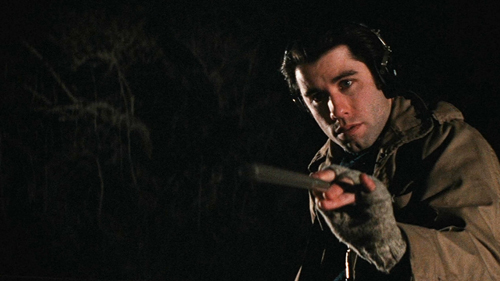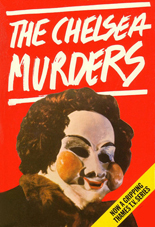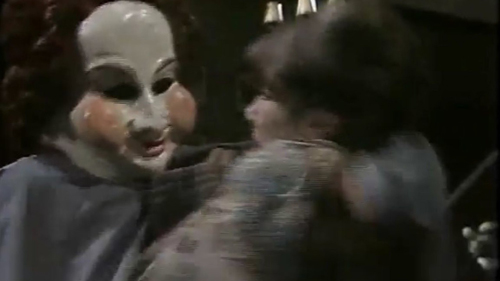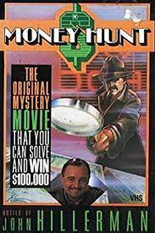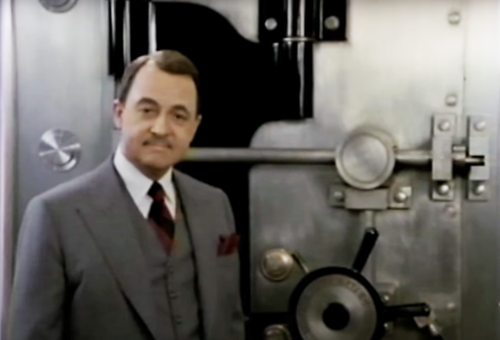
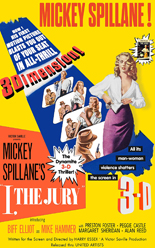 Suitably, I, the Jury begins with a bang — literally, as the sawed-off muzzle of a .45 pokes through an apartment door and fatally plugs a one-armed man. And it should, this being the first live-action depiction of Mickey Spillane’s Mike Hammer character. At the time, Spillane had sold millions upon millions of paperbacks featuring the private dick, so a movie was a big deal — so big, it was made in 3-D!
Suitably, I, the Jury begins with a bang — literally, as the sawed-off muzzle of a .45 pokes through an apartment door and fatally plugs a one-armed man. And it should, this being the first live-action depiction of Mickey Spillane’s Mike Hammer character. At the time, Spillane had sold millions upon millions of paperbacks featuring the private dick, so a movie was a big deal — so big, it was made in 3-D!
Biff Elliot (The Day of the Wolves) plays the investigating Hammer like an exposed nerve with a hair-trigger temper. If he’s not shoving a nosy journo into the contents of a china cabinet, he’s throwing a drink in the face of some hood. Equally agile is his mouth, eveready with a salty cutdown of doubt. For example, when a person of interest claims he can prove he was in bed at the time of the crime, Hammer snaps, “How? Take a notary public with ya?”
With a Christmas setting making misery, writer/director Harry Essex (Octaman) keeps the frames moving at a pace approximate to the seemingly effortless swiftness of Spillane’s pages. We follow Hammer as he leaps from informant to suspect and back again, including an alcoholic fighter, a veterinarian, a dance instructor, a Spanish bartender and, most notably, a hotsy-totsy shrink (Peggie Castle, 1952’s Invasion, U.S.A.) who serves as our femme fatale. Everyone is so colorful, the whodunit aspect practically becomes secondary.
Although limited as an actor, Elliot makes for a fine-enough tough guy, excelling in his narration of Jury, which is an admirable way to transition the character from novel to screen. I’d say it’s a shame neither he nor Essex got the opportunity to repeat their jobs as a franchise, but then we wouldn’t have Robert Aldrich’s definitive Kiss Me Deadly two years later. That’s a crime classic; I, the Jury is a pretty solid lead-in. —Rod Lott

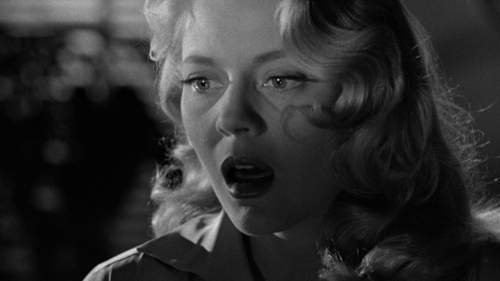
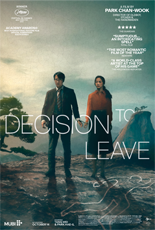 When a 60-year-old man is found dead at the bottom of a mountain, police detective Hae-joon Jang (Park Hae-il,
When a 60-year-old man is found dead at the bottom of a mountain, police detective Hae-joon Jang (Park Hae-il, 